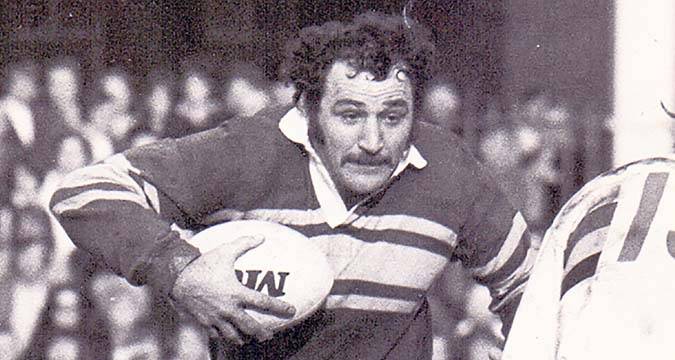 Tony Fisher won eleven Great Britain caps and 16 for Wales, the undoubted highlight being the 1970 Lions Tour of the Southern Hemisphere.
One of many Welshmen to venture north, he started at Bradford Northern with his brother Idwal before enjoying a five-year spell at Leeds that included a Championship Final victory in 1972.
The fearsome hook
Tony Fisher won eleven Great Britain caps and 16 for Wales, the undoubted highlight being the 1970 Lions Tour of the Southern Hemisphere.
One of many Welshmen to venture north, he started at Bradford Northern with his brother Idwal before enjoying a five-year spell at Leeds that included a Championship Final victory in 1972.
The fearsome hook Rugby League Heroes: Tony Fisher
 Tony Fisher won eleven Great Britain caps and 16 for Wales, the undoubted highlight being the 1970 Lions Tour of the Southern Hemisphere.
One of many Welshmen to venture north, he started at Bradford Northern with his brother Idwal before enjoying a five-year spell at Leeds that included a Championship Final victory in 1972.
The fearsome hook
Tony Fisher won eleven Great Britain caps and 16 for Wales, the undoubted highlight being the 1970 Lions Tour of the Southern Hemisphere.
One of many Welshmen to venture north, he started at Bradford Northern with his brother Idwal before enjoying a five-year spell at Leeds that included a Championship Final victory in 1972.
The fearsome hook 